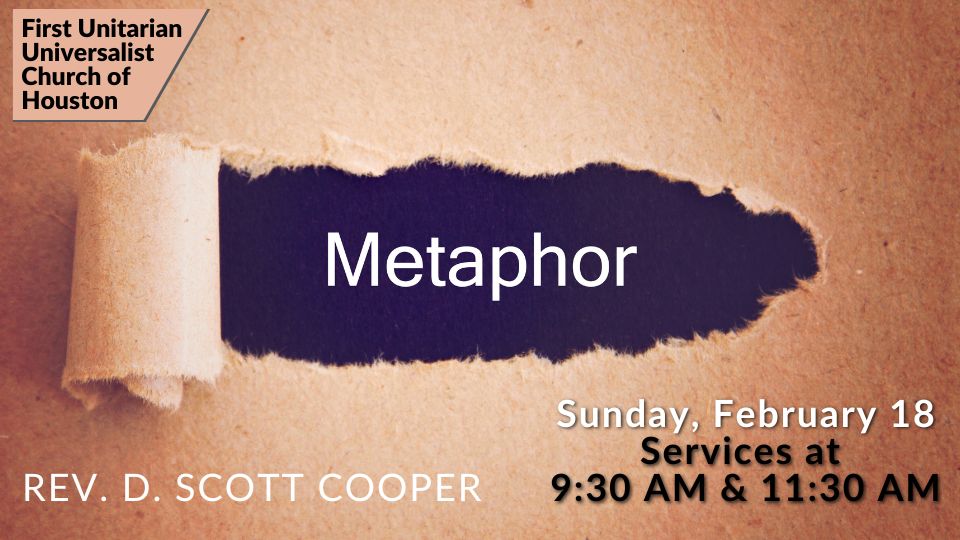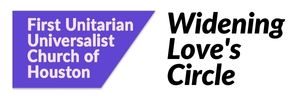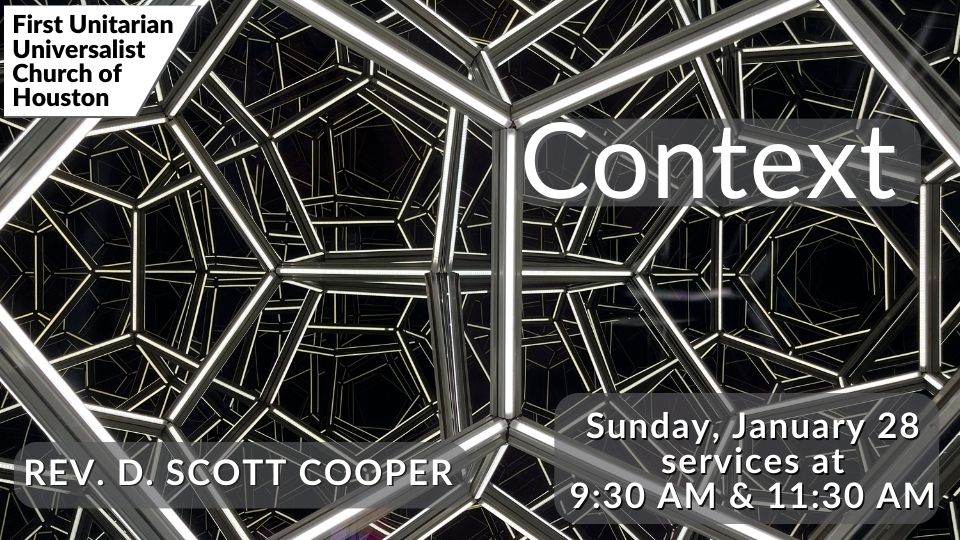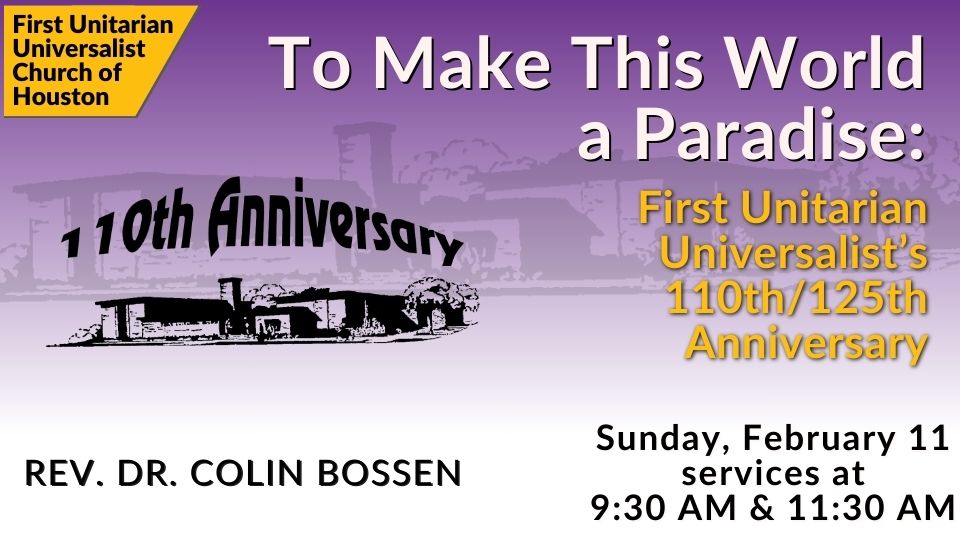News February 16, 2024

Dear Beloved Community,
In many places across time, cultures have had opportunities for children to transform into adulthood through Coming of Age rituals. In our culture, graduating from high school marks a significant transition from mandatory school into the life of an emerging adult. It may mean a time of leaving the home of parents or primary caregivers. This marks a significant social change in a youth’s life.
Not many religions provide a similar type of social transition in our current cultural landscape. One exception is in the Jewish tradition, when young teens do the significant work of preparing for a Bar or Bat Mitzvah.
For Unitarian Universalists, we have a Coming of Age program, at about age 13 or 14. This year, at our church, we have six youth, each with their own adult mentor, exploring Unitarian Universalism and their own values and beliefs in our half year Coming of Age (COA) program. They explore the various aspects of our church’s practices as well as understanding Unitarian Universalism principles, sources and practices. These include worship, UU history and our church’s history, religious education, social justice, leadership and community.
Each youth will develop their own CREDO, which is a statement of belief. We tell the youth that beliefs evolve over time so when they create their CREDO, they are creating a statement of belief for this point in their lives. What do they value? What do they think is a way to live a good life? Do they believe in God/gods? How do we deal with pain and suffering in the world? What happens after we die? This kind of exploration we hope allows a faithful reflection of what might be the youth’s moral and behavioral choices in life.
One lesson recently explored kindness. Acts of kindness not only directly help another person or group, but also help the one who does the kind act. Doing a kind act changes us: the neurotransmitters in the brain that bring joy and satisfaction are activated. In addition, the person who is helped is more likely to help another person, so the kindness can spread and create a culture of helping and kindness. This is true whether the act of kindness is large or small. It is true whether we know the person or if it is a stranger.
Separate from our Coming of Age Program, this year, our YoUUth Unit (6th-8th grade youth) are learning about different religions and visiting some local places of worship. They have visited a Buddhist Temple, the Mudhif exhibit at Rice University showing the Marsh Arab way of life and Antioch Missionary Baptist Church. They will visit a Hindu Temple this Spring. By the end of the year, they will have learned some about Buddhism, Marsh Arabs, Christianity, Paganism and Mormanism and Hinduism. Unitarian Universalists want our youth and members to learn about the religions of the world and religious practices.
I am grateful for the opportunity to be part of a religion that provides this kind of exploration for our youth and for the numerous volunteers that share their time and passion to care for the young in our beloved community. I am very happy to share this part of what we are doing this year in our First Unitarian Universalist Religious Education programs with you.
See you on a Sunday soon,
Carol
In many places across time, cultures have had opportunities for children to transform into adulthood through Coming of Age rituals. In our culture, graduating from high school marks a significant transition from mandatory school into the life of an emerging adult. It may mean a time of leaving the home of parents or primary caregivers. This marks a significant social change in a youth’s life.
Not many religions provide a similar type of social transition in our current cultural landscape. One exception is in the Jewish tradition, when young teens do the significant work of preparing for a Bar or Bat Mitzvah.
For Unitarian Universalists, we have a Coming of Age program, at about age 13 or 14. This year, at our church, we have six youth, each with their own adult mentor, exploring Unitarian Universalism and their own values and beliefs in our half year Coming of Age (COA) program. They explore the various aspects of our church’s practices as well as understanding Unitarian Universalism principles, sources and practices. These include worship, UU history and our church’s history, religious education, social justice, leadership and community.
Each youth will develop their own CREDO, which is a statement of belief. We tell the youth that beliefs evolve over time so when they create their CREDO, they are creating a statement of belief for this point in their lives. What do they value? What do they think is a way to live a good life? Do they believe in God/gods? How do we deal with pain and suffering in the world? What happens after we die? This kind of exploration we hope allows a faithful reflection of what might be the youth’s moral and behavioral choices in life.
One lesson recently explored kindness. Acts of kindness not only directly help another person or group, but also help the one who does the kind act. Doing a kind act changes us: the neurotransmitters in the brain that bring joy and satisfaction are activated. In addition, the person who is helped is more likely to help another person, so the kindness can spread and create a culture of helping and kindness. This is true whether the act of kindness is large or small. It is true whether we know the person or if it is a stranger.
Separate from our Coming of Age Program, this year, our YoUUth Unit (6th-8th grade youth) are learning about different religions and visiting some local places of worship. They have visited a Buddhist Temple, the Mudhif exhibit at Rice University showing the Marsh Arab way of life and Antioch Missionary Baptist Church. They will visit a Hindu Temple this Spring. By the end of the year, they will have learned some about Buddhism, Marsh Arabs, Christianity, Paganism and Mormanism and Hinduism. Unitarian Universalists want our youth and members to learn about the religions of the world and religious practices.
I am grateful for the opportunity to be part of a religion that provides this kind of exploration for our youth and for the numerous volunteers that share their time and passion to care for the young in our beloved community. I am very happy to share this part of what we are doing this year in our First Unitarian Universalist Religious Education programs with you.
See you on a Sunday soon,
Carol



